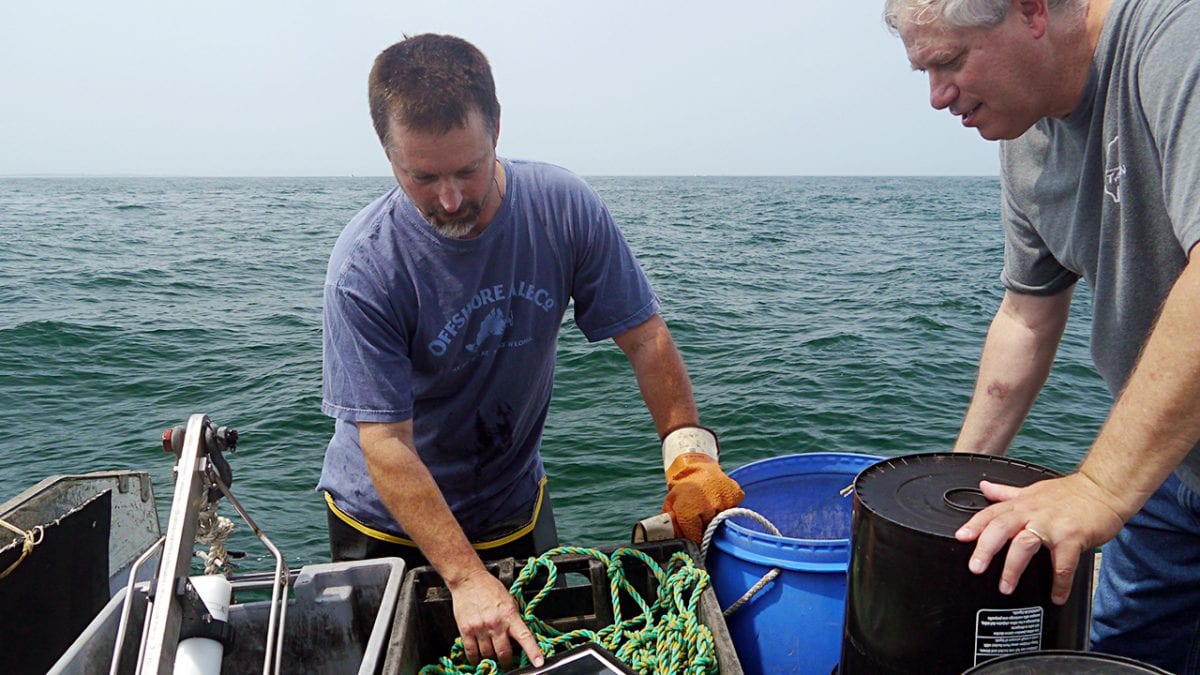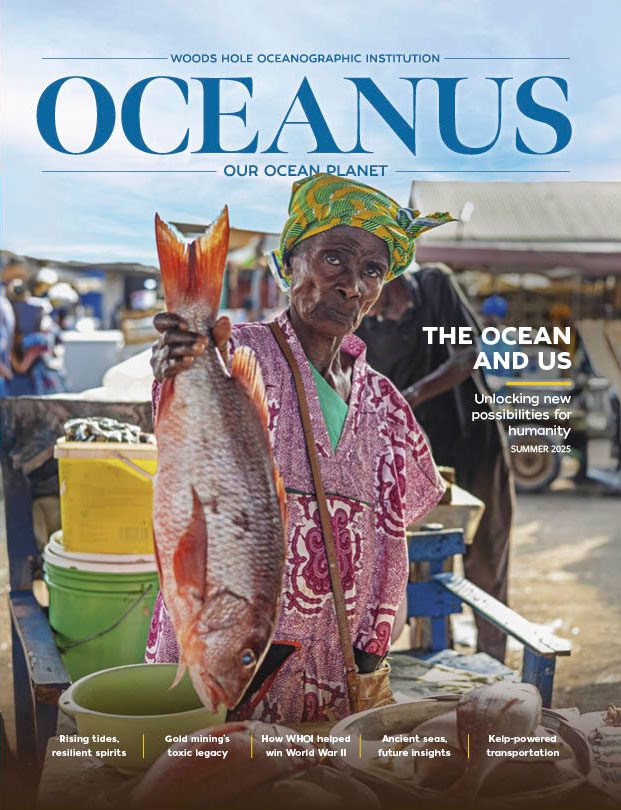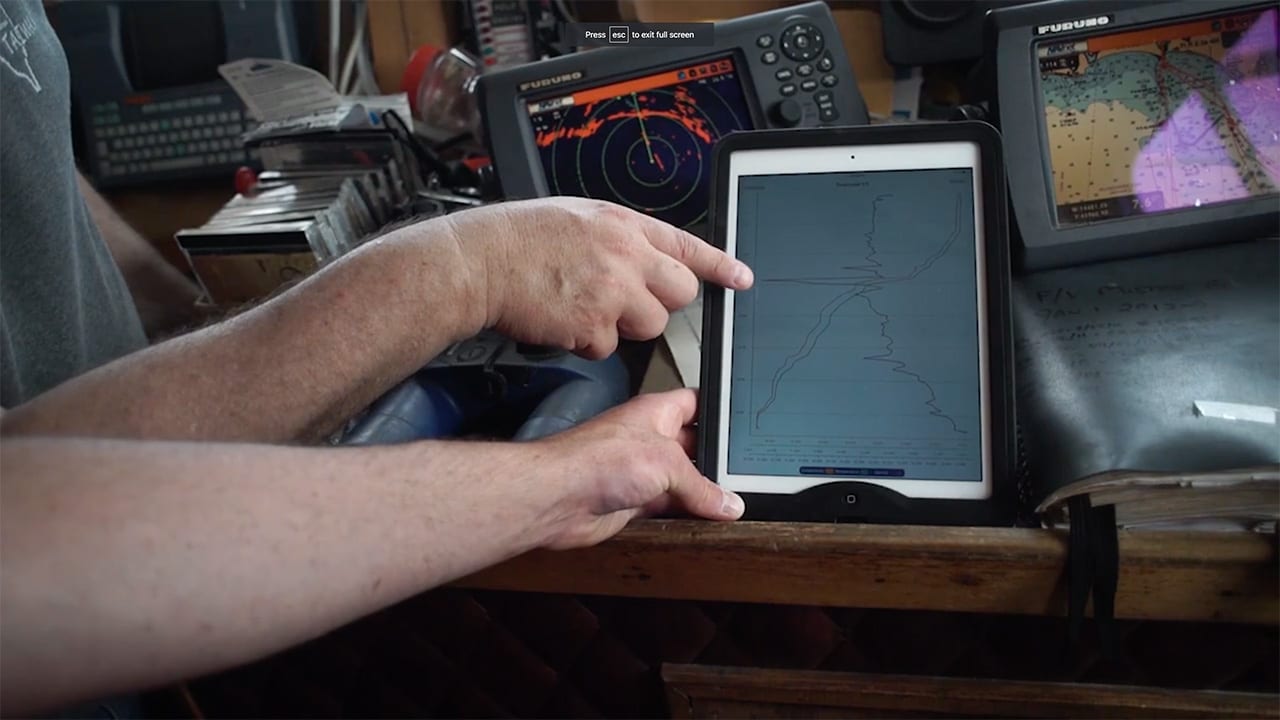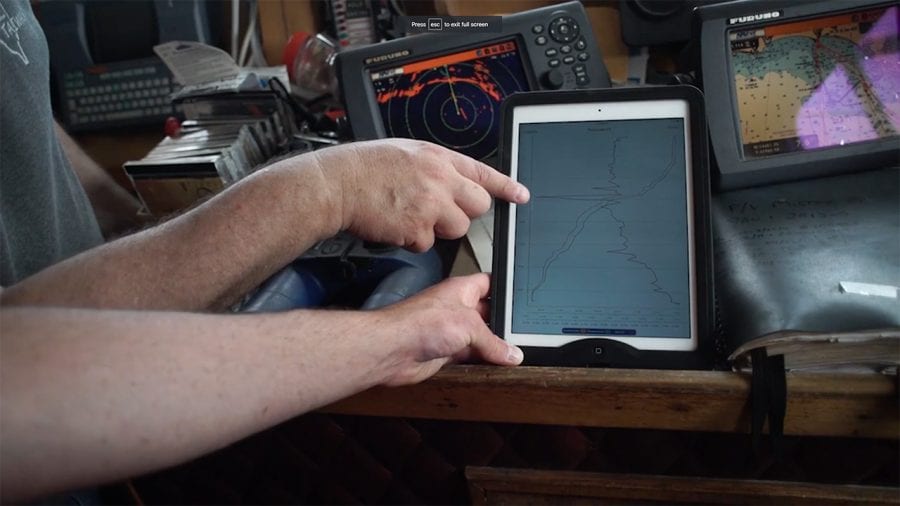
Scientist-Fisherman Partnership
Collaboration spurs mutual benefits for research and industry
Scientists at the Woods Hole Oceanographic Institution are enlisting the help of local fishermen to understand how climate change is changing the ocean.
Waters off the southern New England coast teem with marine life and support an active commercial fishery. But in recent years, fishermen such as Kevin Jones have noticed conditions there are changing.
“The water is warming up, and we see different species around than we used to,” said Jones, who captains the F/V Heather Lynn out of Point Judith, Rhode Island.
“Recent changes in temperature are very important in terms of the ecosystem, because fish and other marine organisms tend to be very temperature-sensitive,” said WHOI physical oceanographer Glen Gawarkiewicz.
But at-sea oceanographic sampling is expensive, and fewer research expeditions are being funded.
“There has been a lack of consistent measurements across the continental shelf south of Rhode Island,” Gawarkiewicz said. “To understand the changes in ocean conditions and how those changes impact ecosystems and the people who depend on them, we need to collect more data, more often.”
In 2014, WHOI teamed up with the Commercial Fisheries Research Foundation (CFRF) to create the Shelf Research Fleet. It is made up of commercial fishing vessels that fish in or transit through the region. The partnership has proven to be a cost-effective way to collect much-needed scientific data.
CFRF staff and WHOI researchers trained fishing captains and crew members to take weekly measurements of water conductivity (salinity), temperature, and depth, using an oceanographic instrument called a CTD. Fishermen use an iPad tablet to view the measurements in real time aboard their fishing vessels and to add notes about tides, weather conditions, and fish species observed in the area. Fishermen get a stipend for their participation in the program, and the data are sent to WHOI and CFRF and posted on a public website.
Fleet fishermen also participated in workshops with WHOI scientists, where they shared their observations about fish in the area, discussed data they collected, and helped researchers interpret results.
“The fishermen’s insights are really important,” Gawarkiewicz said.
“We’re utilizing fishermen’s time on the water and their knowledge of the ocean environment to develop an understanding of this highly dynamic area,” said CFRF Executive Director Anna Malek Mercer, who directs the research fleet. “Scientists benefit from access to fine-scale oceanographic data as well as decades of fishermen’s observations. And fishermen benefit from a better understanding of the ecosystem that they rely upon for their livelihoods.”
The John D. and Catherine T. MacArthur Foundation funded the Shelf Research Fleet pilot program, which ended in October 2016. Gawarkiewicz and Malek Mercer obtained funding from the van Beuren Charitable Foundation of Newport, R.I., to extend the project for another two years, and they hope to continue the collaboration indefinitely.


